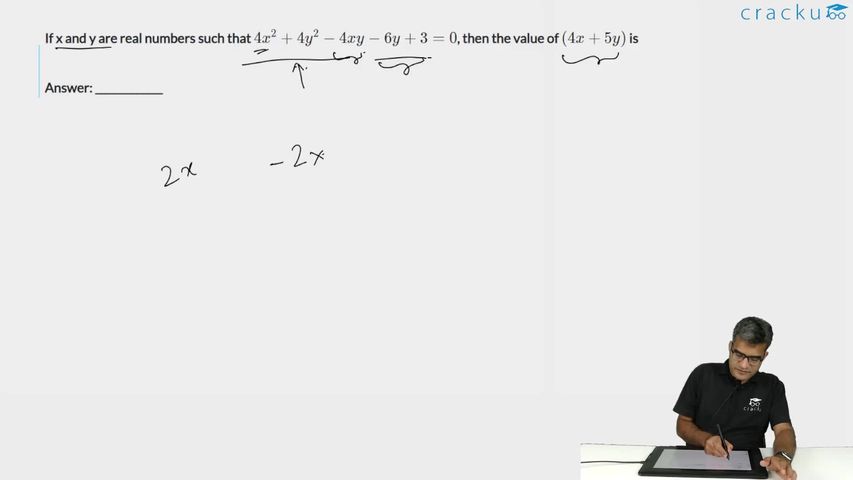Sign in
Please select an account to continue using cracku.in
↓ →
If x and y are real numbers such that $$4x^2 + 4y^2 - 4xy - 6y + 3 = 0$$, then the value of $$(4x + 5y)$$ is
Correct Answer: 7
In such questions, we should be trying to complete the squares.
We see a $$xy$$ term; we need to accommodate that in a square that has both x and y terms.
Since there is only one other term with x, we also need to have it entirely in the square.
$$\left(2x-y\right)^{^2}=4x^2+y^2-4xy$$
Using this in the given equation, we are left with $$\left(2x-y\right)^{^2}+3y^2+3-6y$$
This can be written as $$\left(2x-y\right)^{^2}+3\left(y^2+1-2y\right)$$
$$\left(2x-y\right)^{^2}+3\left(y-1\right)^2=0$$
Since both the squares add up to 0, this is only possible when the squares themselves are 0
This would give us y=1 from the second term, and using that, we get x= 1/2 from the first term.
Therefore the value of 4x+5y will be 2+5 = 7
Hence, 7 is the correct answer.

Click on the Email ☝️ to Watch the Video Solution
Create a FREE account and get:
Educational materials for CAT preparation